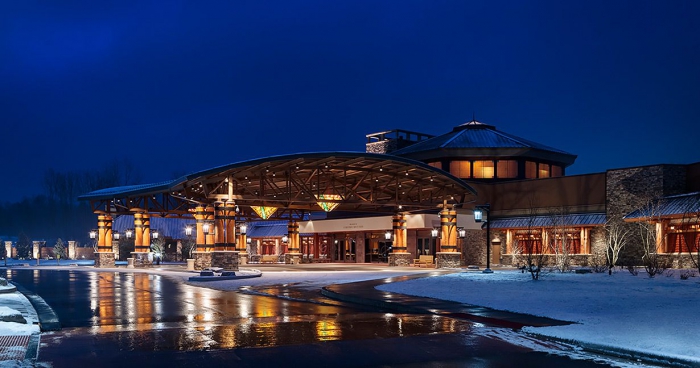A gaming compact will now go to the full Senate before moving to the Indiana House
A
n Indiana Senate committee passed on Thursday a gaming compact that would allow table games and sports betting at the Four Winds Casino in South Bend. The agreement will now go to the full Senate to be ratified before moving to the Indiana House.
The compact was finalized last month between Gov. Eric Holcomb’s administration and the Pokagon Band of Potawatomi Indians, which operates the casino on tribal land at Indiana 23 and the U.S. 20 Bypass.
Under the compact, the state would allow the Pokagons to operate “Class III” gambling, which includes table games such as blackjack, craps and roulette, as well as slot machines, in exchange for a share of revenue. The casino has been operating more limited “Class II” gaming, which allows forms of electronic bingo played against other guests, but not against the house.
The Senate Appropriations Committee sent the compact to the full Senate by a 12-1 vote Thursday, with no discussion beyond brief words of support from a state gaming official, the Pokagon tribal chairman and several lawmakers.
Sen. David Niezgodski, D-South Bend, recited the Pokagon band’s many contributions to the South Bend community over the past five years, including several million dollars to the city of South Bend and hundreds of thousands more to local charities.
Sen. Ryan Mishler, R-Bremen, the chairman of the Appropriations Committee, praised the agreement as a “very simple, fair compact.”
During the roll-call vote, Sen. Fady Qaddoura, D-Indianapolis, said he voted “no” because gambling is a “moral issue” for him, though he voiced general support for the Pokagons.
The compact is a first for Indiana, where Four Winds is the only tribal casino operating on federally designated land. Indiana’s other casinos are commercial operations that are licensed and taxed by the state.
“In Michigan, this is kind of commonplace,” Mishler said, “but this was all new to us.”
The state cannot tax a tribal casino, but can negotiate revenue sharing as part of the compact required by the federal government. The Pokagons have agreed to pay the state 8% of the net revenue from slot machines at the South Bend casino, and 2% to the city.
During brief remarks before the committee Thursday, Pokagon Tribal Council Chairman Matthew Wesaw said the negotiation of the compact lasted more than a year, partially because of the COVID-19 pandemic, but yielded good results.
“This will help us as a Pokagon tribe to continue to improve the quality of life of our citizens,” Wesaw said, “but the one thing I really want to note … is the revenue that’s generated by this operation is revenue that stays right within the community.”
Mishler previously suggested the compact’s ratification was something of a foregone conclusion because the federal government could step in and allow the Pokagons to conduct Class III gaming with or without the state’s approval.



